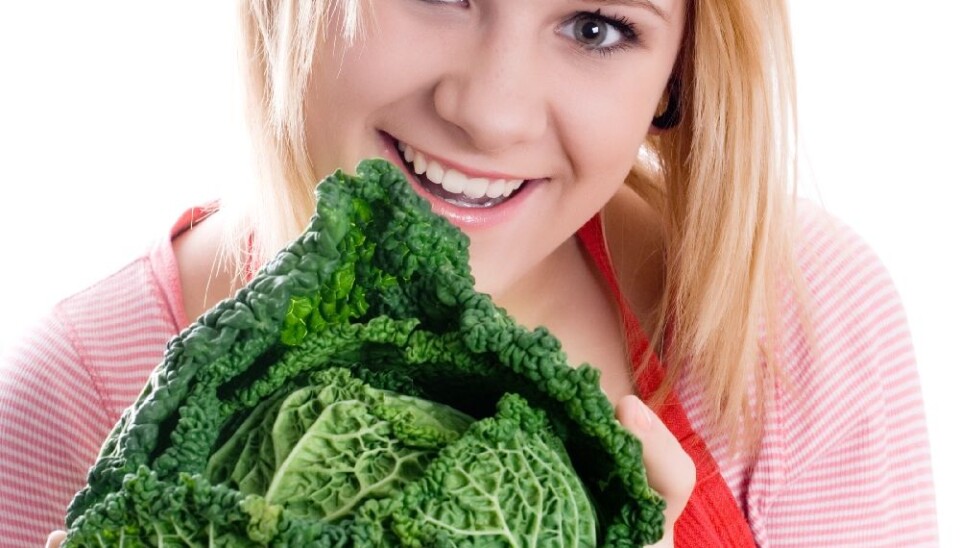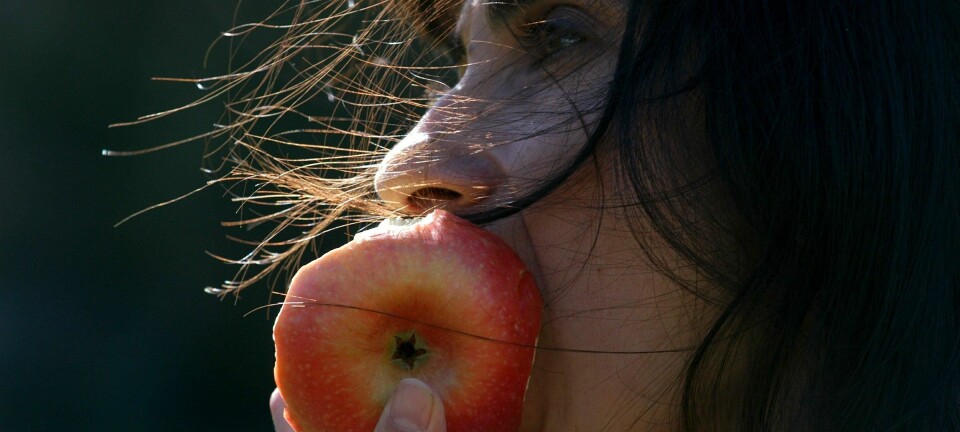
You're probably not what you eat
New study shows that we can never be sure how our bodies react when we for instance eat less meat and more vegetables. It’s probably our genes teasing the nutrition experts.
Most of us have had the ‘You are what you eat’ adage thrown over us at some point. The message is that if you stuff less fat and more vegetables into your mouth, you’ll be a healthier person – for the simple reason that healthy food makes us healthy.
The problem is that an increasing number of studies suggest a much more nuanced reality.
Did you for instance know that studies with animals have shown that the beneficial effects of your fish oil will disappear if you eat sugar straight afterwards – because the two foods react to each other?
That eating less fat doesn’t automatically mean you’ll lose weight?

Or that it’s not at all certain that your blood pressure or the cholesterol levels in your blood drop just because you stay away from red meat?
Food affects us in a wide variety of ways
These uncertainties are now being exposed in a new study at the University of Copenhagen.
Two PhD students made a detailed examination of 147 persons, who over a six-month period were fed one of two different diets: an ‘average Danish diet’, comprised of the most common dishes in Denmark, or the new Nordic diet, which includes more fruits and vegetables and less meat.
The researchers were on the lookout for a correlation between what we eat and how our bodies react.
If the entire population eats rye bread, it will generally have a positive impact on public health. But for some people there may not be any effect at all.
They concluded that there are no clear-cut answers to how a person’s diet affects each individual person’s cholesterol levels, blood sugar levels, body fat percentage or any of the other 37 parameters they studied.
”It’s entirely possible to experience the same changes from both diets,” says one of the researchers, Maj-Britt Schmidt Andersen, of the Department of Human Nutrition at the University of Copenhagen.
“We had hoped to find some clearer correlations, so that we could create new hypotheses about dietary influences, but we just couldn’t find any.”
Dietary guidelines still make good sense
Although researchers have failed to spot any clear differences in the effects on individuals, an earlier study has shown that the new Nordic diet does, on average, have a positive effect on a large group of people:
We had hoped to find some clearer correlations, so that we could create new hypotheses about dietary influences, but we just couldn’t find any.
After twelve weeks, test subjects who were put on the new Nordic diet lost on average 1.5 kg more than those on the average Danish diet.
So it still makes sense to stick with dietary advice:
“If the entire population eats rye bread, it will generally have a positive impact on public health. But for some people there may not be any effect at all,” says Andersen.
Genes interact with food you ate years ago
The problem is rather that the researchers cannot see a clear picture of which foods affect which people.
The reason is presumably to be found in a highly complex interplay between our genes and all the various foods we have consumed throughout our lives, explains the researcher. We’re all constituted differently by nature, and it’s probably the large and complex genetic puzzle that may make one body better than another at benefiting from, say, apples or fish.
It’s probably not right either to say that just because you change your diet, your body will reset itself, so that you immediately get a full bonus from this dietary change.
Hard to figure out how food affects us
According to Andersen, we constantly carry our previous diet and lifestyle around with us together with whatever new diet we change to. It takes time for your metabolism to readjust from having eaten burgers for 20 years to eating salad on a daily basis. And it takes a long time to change our intestinal flora, which an increasing number of studies have pointed to as crucial for our health.
The researchers are still in the very early stages of understanding the interplay between food and genes, a field known as nutrigenomics.
There are still relatively few examples where it is known that certain genes have an impact on how we process food, says the researcher. There are, for example, great differences in how quickly we absorb coffee in our bodies and how much we benefit from eating broccoli.
“Medical research is increasingly focusing on genetics in its search for targeted treatment, but it’s actually even harder to find patterns in food because it has a much less specific effect on us than medicine has – and because we eat every day of our lives,” she explains.
How to study diet and genes
In many ways it’s fair to say that scientists are looking for a needle in a haystack, but Andersen believes there are sensible methods which could get researchers on the right track.
They can study how a particular diet affects us by for instance looking at:
1. Genes and how they are expressed in the body
2. Metabolites (products arising from reactions in cells)
3. Our intestinal flora
“We know the players on the pitch. It’s just that there are so many of them that we don’t yet have the tools that can look at them all at once in a meaningful way.”
Besides, you could go on testing ad infinitum, she adds.
“What if a test subject is on antihypertensive medication or has high blood sugar levels during the test, does that affect the results? At some point you just have to say stop because we only have limited amounts of time and money.”
No point in publishing a cul-de-sac
Although she’s surprised they didn’t manage to spot any clear differences, her research team is unlikely to publish these latest findings in scientific journals because the results merely confirm that we react differently to foods.
”When we don’t find anything new or any clear patterns, then we don’t really have anything to say,” she says. “Our main study will of course be published in a journal, but as regards the individual analyses, we’ll probably just leave those results to the side for now.”
Results could be tainted by cheating
Andersen will now examine urine samples from the large-scale project on the effect of the new Nordic diet, called OPUS. One of the reasons for these urine tests is to find out whether people have affected the results by cheating in the kitchen.
“If our test subjects have cheated, if they haven’t follow the diet they were supposed to follow, of if they have eaten more than they say they have, then obviously that would affect our results. I will try to find markers that can reveal whether they have eaten one thing or another,” says Maj-Britt Schmidt Andersen.
The final conclusions from the OPUS project are expected to be published at some time this spring.
--------------------------------
Read this article in Danish at videnskab.dk
Translated by: Dann Vinther










